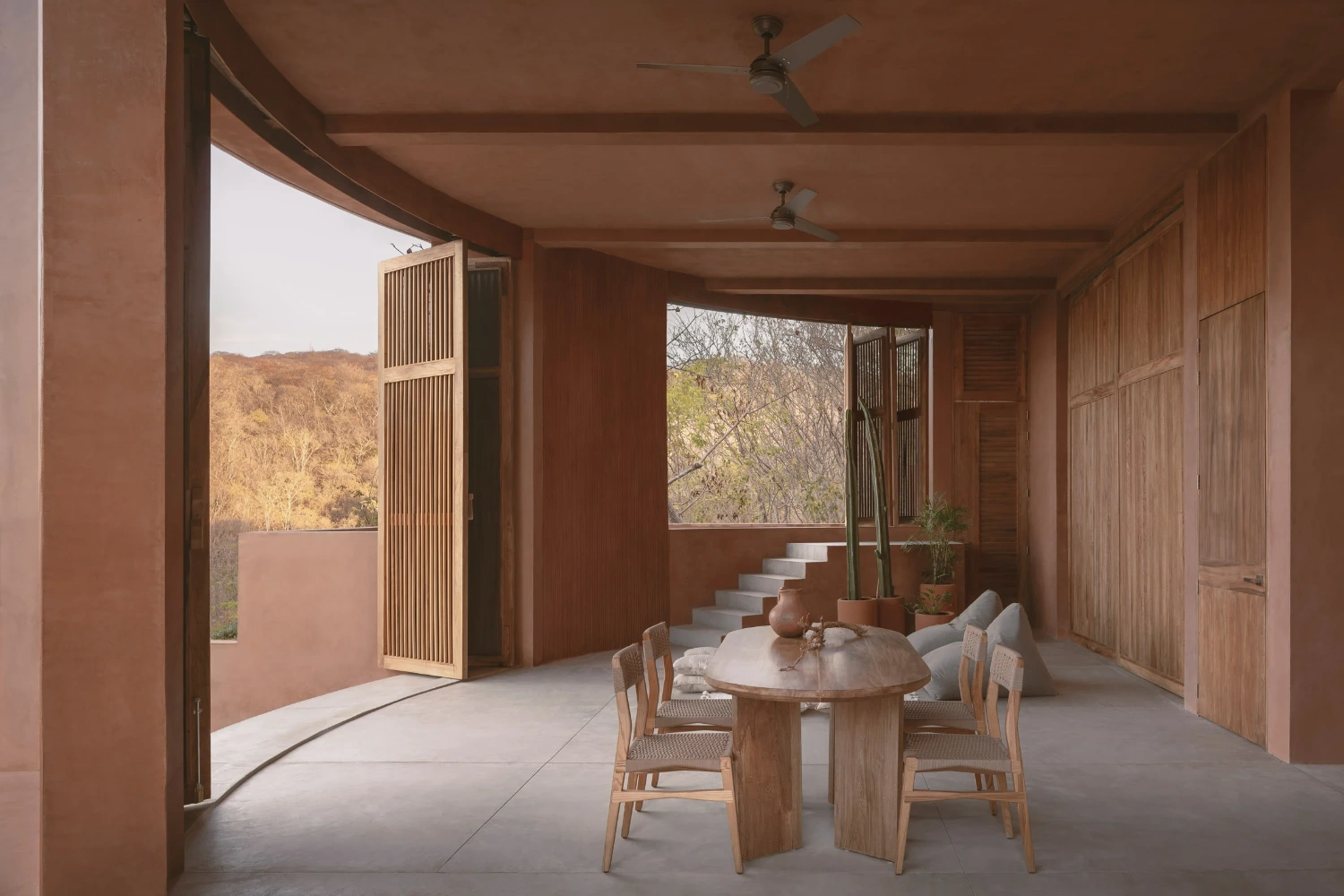Casa Tobi, the latest residential project by Espacio 18, stands like a silent gesture etched into the coastal cliffs of Puerto Escondido in Mexico.
Rather than imposing itself on the landscape, the home yields—its stepped descent mirroring the gradient of the terrain, its material palette echoing the earth's dry rusts and muted sands. Drawing philosophical resonance from Sou Fujimoto’s vision of primitive architectural futures, Casa Tobi reinterprets tradition not through nostalgia but through quiet play, layering elemental forms and sensorial experiences in dialogue with the Oaxacan wild.
From the first step onto its upper terrace, one is enveloped by an elemental serenity. A reflecting pool greets visitors not only with aesthetic poise but with climatic function—cooling, mirroring, stilling. This water, both mirror and membrane, initiates the descent into the home’s lower levels, where volumes open and compress in an intentional choreography that recalls the intimacy of a cave and the openness of the horizon. Architecture here does not announce itself; it reveals.
As one moves through the space, architecture becomes a slow unveiling. The social core—study, dining, pool, fire pit—is carved into a one-and-a-half-story expanse, blurring thresholds between built form and vast surroundings. The panoramic drama of hills and sea is not a backdrop but an integral actor in daily ritual. The private quarters, by contrast, retreat to the lowest level, where intimacy is foregrounded and the canopy filters light into secrecy and calm.
The tactile narrative of Casa Tobi hinges on its raw, terrestrial expressiveness. Earth tones recall crab shells and oxidized stone, a crustacean mythology that anchors the home in both whimsy and geology. Water reappears in evocative gestures—a nod to the petrified falls of Hierve el Agua—linking domesticity with myth and topography. This is a home that does not frame views; it succumbs to them.


















